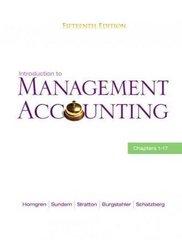Accume you are Finance Director of a large multinational company, listed on a number of international stock markets. The company is reviewing its corporate plan. At present, the company focuses on maximising shareholder wealth as its major goal. The Managing Director thinks this single goal is inappropriate and asks his co-directors for their views on giving greater emphasis to the following. (2 ) Cash flow generation (b) Profitability as measured by profits after tax and return on investment (C) Risk-adjusted returns to shareholders Performance improvement in a number of areas such as concern for the environment, employees remuneration and quality of working conditions and customer satisfaction Required Provide the Managing Director with a report for presentation at the next board meeting which: (a) Evaluates the argument that maximisation of shareholder wealth should be the only true objective of a company, and Discusses the advantages and disadvantages of the MD's suggestions about alternative goals (b) (20 marks)The table below shows earnings and dividends for XYZ Inc over the past five years. Year Net earnings Net dividend 20W9 per share per share 20XO $ $ 20X1 1.40 0.84 20X2 1.35 0.88 20X3 1.35 0.90 1.30 0.95 1.25 1.00 There are 10,000,000 shares issued and the majority of these shares are owned by private investors. There is no debt in the capital structure. It is clear from the table that the company has experienced difficult trading conditions over the past few years. In the current year, net earnings are likely to be $10 million, which will be just sufficient to pay a maintained dividend of $1 per share. Members of the board are considering a number of strategies for the company, some of which will have an impact on the company's future dividend policy. The company's shareholders require a return of 15% on their investment. Four options are being considered, as follows. (1) Pay out all earnings as dividends. (2) Pay a reduced dividend of 50% of earnings and retain the remaining 50% for future investment. (3) Pay a reduced dividend of 25% of earnings and retain the remaining 75% for future investment. (4) Retain all earnings for an aggressive expansion programme and pay no dividend at all. The directors cannot agree on any of the four options discussed so far. Some of them prefer option (1) because they believe to do anything else would have an adverse impact on the share price. Others favour either option (2) or option (3) because the company has identified some good investment opportunities and they believe one of these options would be in the best long-term interests of shareholders. An adventurous minority favours option (4) and thinks this will allow the company to take over a small competitor.Required (a ) Discuss the company's dividend policy between 20W9 and 20X3 and its possible consequences for earnings. (4 marks) ( 1 ) Advise the directors of the share price for XYZ Inc which might be expected immediately following the announcement of their decision if they pursued each of the four options, using an appropriate valuation model. You should also show what percentage of total return is provided by dividend and capital gain in each case. You should ignore taxation for this part of the question. Make (and indicate) any realistic assumptions you think necessary to answer this question. (6 marks) ( C ) Discuss the reliability you can place on the figures you have just produced and on the usefulness of this information to the company's directors. (5 marks) (Total = 15 marks)A company is considering improving the methods of remuneration for its senior employees. As a member of the executive board, you are asked to give your opinions on the following suggestions: (a) A high basic salary with usual 'perks' such as company car, pension scheme etc but no performance-related bonuses (b) A lower basic salary with usual 'perks' plus a bonus related to their division's profit before tax (C ) A lower basic salary with usual 'perks' plus a share option scheme which allows senior employees to buy a given number of shares in the company at a fixed price at the end of each financial year Required Discuss the arguments for and against each of the three options from the point of view of both the company and its employees. Detailed comments on the taxation implications are not required. (12 marks)










